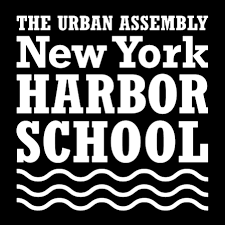Sophomore Class
Sophomores
the journey starts….
VO-1 Basic Seamanship
The very first days of the vessel operations program. The students are no longer freshman. They start off with drills and teamwork challenges to get more familiar and trust each other. Knowing the language of the maritime industry is key, you cant be very productive if you don't know what your teachers are asking you to do. We build our vocabulary, boating terms and maritime safety awareness. is building your maritime skills. Learning differences between boats (hull design, commercial vs. Recreational and engineering systems is important to know. There are many different kinds of engines, all requiring a different type of maintenance, knowing which is which makes a person more valuable on board a vessel. In this course the students also learn about recreational vessels. they receive their NYS safe boaters certificate. In the course they learn about boat registration, emergency procedures, required equipment on board, and proper fueling procedures. As we get deeper into the program and more familiar on what is expected of them, getting underway is a regular procedure. the preparation of the vessel is the most important part of getting underway. You learn how to create a float plan, conduct safety checks, handle lines and work together as a team.
VO-2 Intro to Maritime Careers
This course is when we start to explore the Maritime Industry vast career pathways. We start doing knot tying challenges and learn the science of docking a boat. Studying wind patterns, sailing terms, and rules are vital on any type of vessel. Here we apply what is learned in the classroom to real life on the water. There are hundreds of different paths rooted in the marine industry, so each student takes a specific job and does research into that job. The maritime industry has more job opportunities than you regularly think of. 90% of all cargo comes in the United States by ships. In addition to the ships crews of captain, mates, deckhands, engineers and stewards. There are maritime lawyers, business professionals, long shore-man, etc.. We focus on the shipping industry, looking at cargo ships and the transportation of goods, the ship types, and the fundamentals of a boat. Each person has roles on and off a vessel, including knowing the different parts of a boat, their names, and the hull size to volume mathematics. At this stage, we dive deep into the concept of bouncy boats and how they can float. The construction of the actual vessel is an essential part of a safe industry, so studying the different types of hulls and construction of vessels makes you a more aware mariner. We also learn the way ships move, with a rudder and propeller and the various power-plants are being designed to be greener to reduce the negative impacts on our environment.


